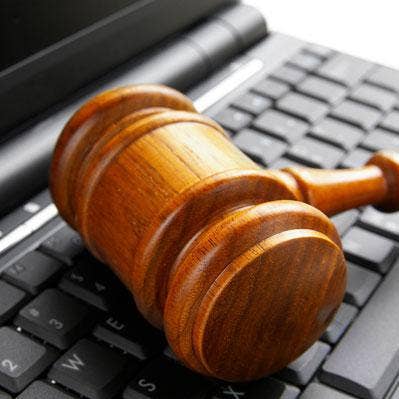Supreme Court Rules In Favor Of Rimini Street Against Oracle

Oracle lost a skirmish Monday in its long-running legal feud with Rimini Street when the nation's highest court cut the third-party support provider's damages in the case by $13 million.
The U.S. Supreme Court decision, authored by Justice Brett Kavanaugh, orders Oracle to refund $12.8 million that Rimini Street had paid the software giant to compensate for certain litigation expenses.
The court was asked to consider what types of litigation expenses are subject to reimbursement in the Copyright Act. While that issue is narrow, it can serve as an important precedent in copyright disputes, as lower courts have split on that question.
[Related: U.S. Labor Department Looks To Elevate Discrimination Lawsuit Against Oracle]
The lawsuit over the lengths third-parties can go to offer and maintain proprietary software from name-brand vendors has seen twists and turns as Oracle looks to set a precedent that will keep other upstarts from cutting into a highly profitable support business.
Last year, the District Court ordered Rimini Street to reimburse Oracle for $12.8 million incurred during litigation spent on expert witnesses, e-discovery and jury consulting. That component of a larger award was upheld by the Ninth Circuit Court of Appeals before the appeal to the Supreme Court.
Previously, Oracle was ordered to refund another $21.5 million it had already collected because of a decision in the Ninth Circuit.
In a prepared statement, Rimini Street CEO Seth Ravin, who was a defendant in the case along with his company, said, "We are pleased with this latest victory in the highest Court, and look forward to continuing our fierce competition with Oracle in the marketplace by providing the best enterprise software support service and value for Oracle licensees worldwide."
Deborah Hellinger, Oracle's vice president for corporate communications, called the Supreme Court ruling on fees "ancillary" to the core rulings in the case.
"The Supreme Court's narrow decision today on recovery of a type of cost does not change the fundamental facts of the case: Rimini engaged in a massive theft of Oracle's IP and tried to cover it up by destroying evidence and engaging in other litigation misconduct, but it got tagged for its illegal activities anyway by both judge and jury, as the opinion acknowledges," Hellinger said.
While third-party support is legal, the dispute revolved around Rimini's practices hosting Oracle software on its own servers, "cloning" that software to bring it to multiple customers, and using Oracle support material to provide its services.
Making an example of Rimini is important to Oracle, which, like many major software vendors, derives large profits from selling annual support for its licensed products—a business with extraordinarily high margins.
Oracle first sued the company in January 2010 on claims of copyright infringement and unfair competition. Rimini countersued a few months later.
In 2014, soon after becoming a publicly traded company, Ravin said Rimini had stopped offering hosted Oracle software.
The case still went to trial in 2015, when a jury found Rimini "innocently" infringed on Oracle copyrights, the violation was not "willful", and Oracle didn't lose profits because of it. The jury awarded Oracle some $50 million in damages, and another $46 million in attorney's fees.
Rimini appealed part of the verdict while taking some responsibility for the non-intentional infringement.
An initial injunction barred Rimini Street from selling the contested services around its enterprise products, but that injunction was vacated by the Ninth Circuit.
In July, U.S. District Judge Larry R. Hicks granted a new one, finding Rimini infringed on 93 Oracle copyrights and "irreparably injured" the software giant's business.
At the time, Rimini Street, based in Las Vegas, NV., said it was not done fighting Oracle, and pledged to appeal the decision, which has "the same legal defects and flaws" that undid the first injunction in the case.
Since then, the case has focused on the amount of damages Rimini would pay Oracle.
In January of last year, after vacating that injunction, the Ninth Circuit reduced the judgement by $50 million. Rimini later argued Oracle owed it another $32 million refund, because of faulty calculations of interest and non-taxable costs in the case.
Judge Hicks slapped Rimini with another $28.5 million in attorney's fees, as well as the $12.8 million at issue in the latest ruling, which Rimini released from an escrow account to Oracle as its appeal played out.